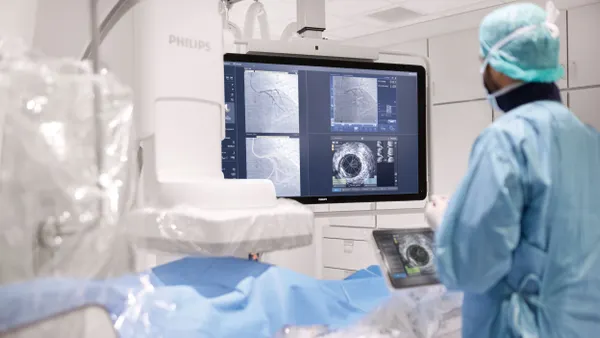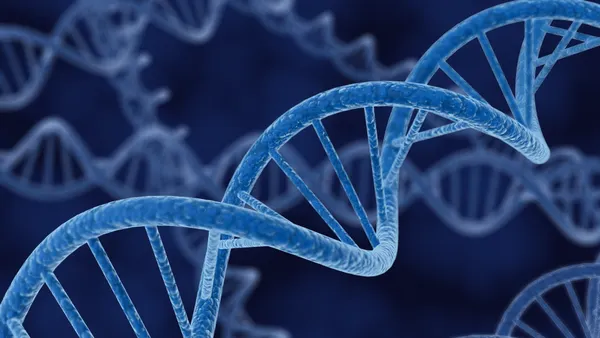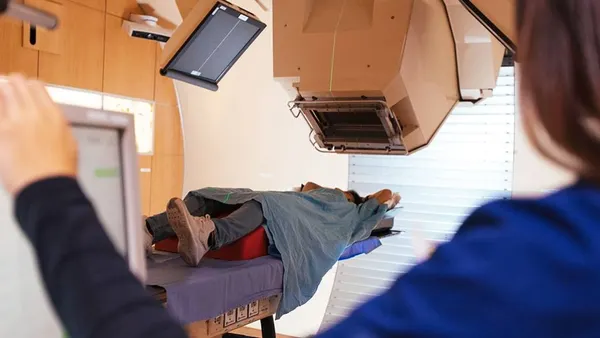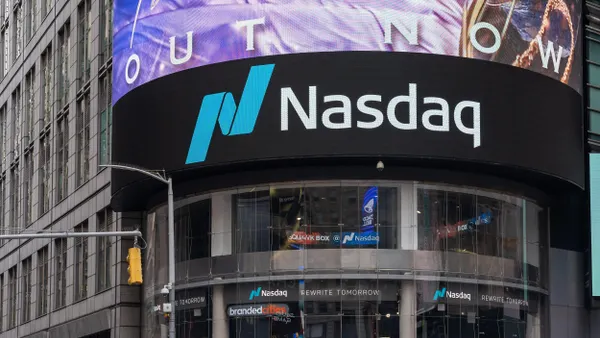Dive Brief:
- Cancer diagnostic developer Grail announced Monday FDA designated the methylation sequencing blood test it's developing for people aged 50 or older as a breakthrough device. The methylation technology incorporates machine learning to detect cancer and identify a tumor's tissue of origin, the company said in a press release.
- The startup said it has already enrolled 115,000 participants in clinical testing and is looking to add 50,000 more, encompassing what it called "one of the largest clinical research programs ever pursued in genomic medicine."
- FDA's support for Grail's test comes as a number of players including Guardant Health, Exact Sciences and Verily-backed Freenome ramp up their own efforts to bring blood-based cancer testing to the market.
Dive Insight:
Formed by sequencing technology company Illumina in 2016, Grail has raised more than $1.5 billion toward its goal of early cancer detection thanks to a star-studded investor list featuring Amazon and Bezos Expeditions, Bill Gates, Alphabet venture arm GV, Johnson & Johnson, Bristol-Myers Squibb and Celgene, Merck and McKesson.
Grail already has 115,000 patients enrolled in two major studies in the U.S. and abroad, the company said Monday, with a third currently aiming to recruit 50,000 participants.
Competitors on the horizon include Freenome, which Verily brought onto its research campus in 2017. Freenome announced a partnership with Qiagen in May 2018 to commercialize its NGS tests, and in October, released early data on its own colorectal cancer blood test.
Precision oncology company Guardant Health, buoyed by its Guardant360 assay for matching cancer patients with appropriate treatments, is developing assays for residual disease and recurrence detection in previously treated cancer patients. It's also working on an assay designed for early detection of cancer in asymptomatic patients, with particular focus on breast, lung, ovarian and colorectal cancer.
On a call with investors last week, Guardant management announced it will initiate a study with at least 10,000 patients for a colorectal cancer screening assay in the second half of this year.
The news spooked some Exact Sciences investors, a company which has looked to seize the colorectal cancer screening market with its stool test, Cologuard. While Exact is still building out its Cologuard business, the company is also working with Mayo Clinic to develop its own multi-cancer blood test, with a particular focus now on lung and liver cancers.
Some analysts said the reaction to news of the Guardant trial was overblown.
"We have not seen anything that suggest Guardant, or anyone else (including Exact Sciences), has been able to develop a blood-based test with high enough early stage sensitivity, even with the help of machine learning and advanced AI," analysts at William Blair told investors.
And even if Guardant is successful in developing an effective test, the analysts said commercialization of such a product would likely be a minimum of four years away.
Grail presented initial results from one study indicating next-generation sequencing (NGS) tests could effectively detect multiple forms of cancer from a single blood draw at last year's American Society of Clinical Oncology meeting.
The startup teased plans Monday to present new findings from that population of cancerous and cancer-free patients at ASCO at the start of June, including a survival analysis comparing patients whose cancer was detected using the methylation technology versus those whose cancer was not detected using the test.
Another large-scale Grail study is looking to validate the multi-cancer test in women enrolled at the time of their screening mammogram. The company said it anticipates sharing results next year
In a third study, Grail has begun gathering 50,000 cancer-free patients with divergent smoking histories, in an attempt to evaluate the test in a high-risk group.
Correction: The story has been updated to reflect that the survival analysis compares patients whose cancer was detected using the investigational test to those whose cancer was not detected using the test.












